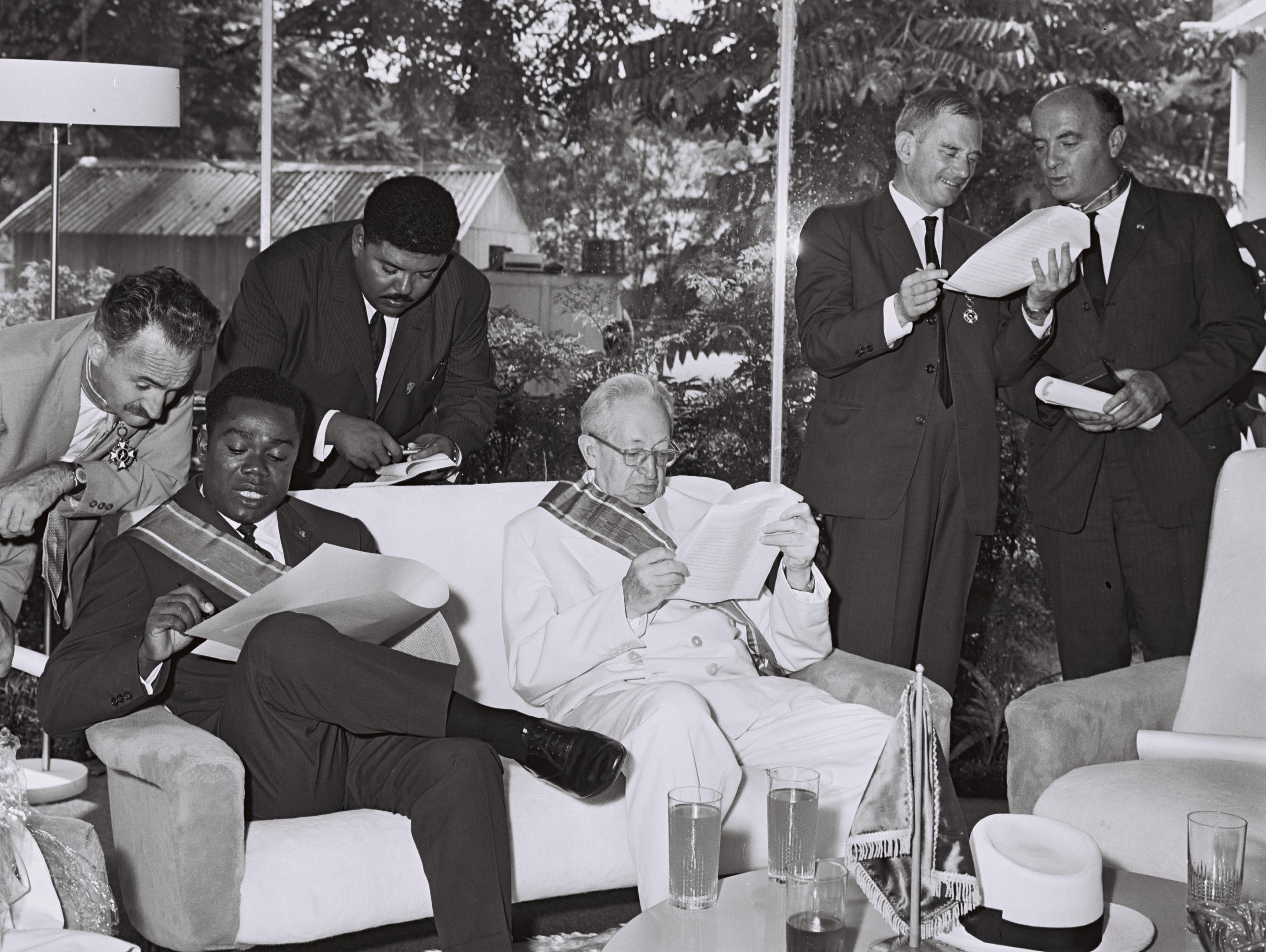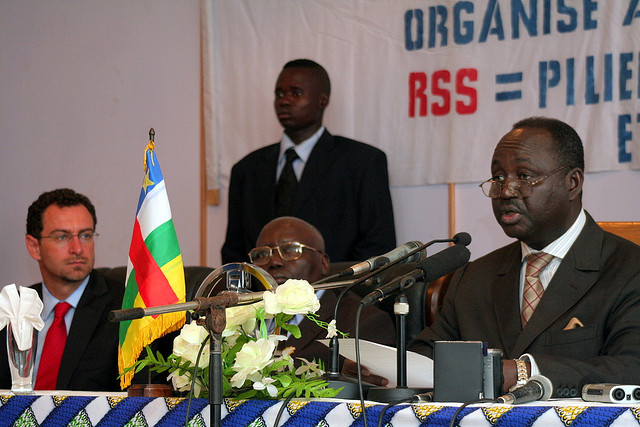|
Vice President Of The Central African Republic
Vice President of the Central African Republic was a political position in the Central African Republic created on two occasions. References {{DEFAULTSORT:Vice President of Central African Republic Politics of the Central African Republic Government of the Central African Republic Vice presidents of the Central African Republic Vice presidents, Central Africa ... [...More Info...] [...Related Items...] OR: [Wikipedia] [Google] [Baidu] |
Central African Republic
The Central African Republic (CAR; ; , RCA; , or , ) is a landlocked country in Central Africa. It is bordered by Chad to the north, Sudan to the northeast, South Sudan to the southeast, the DR Congo to the south, the Republic of the Congo to the southwest, and Cameroon to the west. The Central African Republic covers a land area of about . , it had an estimated population of around million. , the Central African Republic is the scene of a civil war, ongoing since 2012. Most of the Central African Republic consists of Sudano-Guinean savannas, but the country also includes a Sahelo- Sudanian zone in the north and an equatorial forest zone in the south. Two-thirds of the country is within the Ubangi River basin (which flows into the Congo), while the remaining third lies in the basin of the Chari, which flows into Lake Chad. What is today the Central African Republic has been inhabited for millennia; however, the country's current borders were established by ... [...More Info...] [...Related Items...] OR: [Wikipedia] [Google] [Baidu] |
Henri Maïdou
Henri Maïdou (born 14 February 1936) is a retired Central African politician who served as Prime Minister of the Central African Empire (Central African Republic) from 14 July 1978 to 26 September 1979, and Vice President of the CAR in the cabinet of David Dacko from September 1979 to August 1980. Biography Early life Maïdou was born on 14 February 1936 in Bangui. His father, Maurice Maïdou, was an official and his twin brother, Christophe Maïdou, who served as the Central African Ambassador to the Democratic Republic of Congo, Yugoslavia, Japan, Taiwan, France, and the United States. Henri Maïdou came from an academic background and worked as a geography professor. Political career His entry into politics came on 25 June 1970, when President Jean-Bédel Bokassa named him Minister of Education. He became Minister of Youth, Sports, and Arts (along with Education) on 26 April 1971. Maïdou was appointed Minister of Public Health and Social Affairs on 16 October 1973. On 15 ... [...More Info...] [...Related Items...] OR: [Wikipedia] [Google] [Baidu] |
David Dacko
David Dacko (; 1927 – 21 November 2003) was a Central African politician who served as the first president of the Central African Republic from 14 August 1960 to 1 January 1966, and 3rd President from 21 September 1979 to 1 September 1981. After his second removal from power in a ''coup d'état'' led by General André Kolingba, he pursued an active career as an opposition politician and presidential candidate with many loyal supporters; Dacko was an important political figure in the country for over 50 years. Early life and education Dacko was born in the village of Bouchia, near Mbaïki in the Lobaye region, which was then a part of the French Equatorial African territory of Ubangi-Shari to Joseph Iniabodé and Marie Okolania. His parents belonged to the same ethnic group. A M'Baka (Ngbaka), he was a distant cousin of future rival Jean-Bédel Bokassa. Soon after Dacko's birth, his family moved to Boda, where his father worked in a store belonging to a European coffee planter ... [...More Info...] [...Related Items...] OR: [Wikipedia] [Google] [Baidu] |
Abel Goumba
Abel Nguéndé Goumba (; 18 September 1926 – 11 May 2009) was a Central African political figure. During the late 1950s, he headed the government in the period prior to independence from France, and following independence he was an unsuccessful candidate for President of the Central African Republic four times (1981, 1993, 1999, and 2005). Goumba, who was President of the Patriotic Front for Progress (FPP) political party, served under President François Bozizé as Prime Minister from March 2003 to December 2003 and then as Vice President from December 2003 to March 2005. Subsequently, he was appointed to the official post of Ombudsman. Early life He was born in 1926 in Grimari, Ouaka Prefecture in the Oubangi-Chari French colony, which is now the Central African Republic. He was a qualified medical doctor and member of the medical faculty in Bangui. Entry into politics While the country was still a French colony, Goumba was Vice-President of the Government Council fro ... [...More Info...] [...Related Items...] OR: [Wikipedia] [Google] [Baidu] |
François Bozizé
François Bozizé Yangouvonda (born 14 October 1946) is a Central African politician who was President of the Central African Republic from 2003 to 2013. Bozizé rose to become a high-ranking army officer in the 1970s, under the rule of Jean-Bédel Bokassa. After Bokassa was ousted, Bozizé served in the government as Minister of Defense from 1979 to 1981 and as Minister of Information from 1981 to 1982. He participated in a failed 1982 coup attempt against President André Kolingba and subsequently fled the country. Years later, he served as Army Chief of Staff under President Ange-Félix Patassé, but he began a rebellion against Patassé in 2001. Bozizé's forces captured the capital, Bangui, in March 2003, while Patassé was outside the country, and Bozizé took power, ushering in a transitional period of government. He won the March–May 2005 presidential election in a second round of voting, and he was re-elected in the January 2011 presidential election, winning the vo ... [...More Info...] [...Related Items...] OR: [Wikipedia] [Google] [Baidu] |
Politics Of The Central African Republic
The politics of the Central African Republic formally take place in a framework of a semi-presidential republic. In this system, the President is the head of state, with a Prime Minister as head of government. Executive power is exercised by the government. Legislative power is vested in both the government and parliament. Changes in government have occurred in recent years by three methods: violence, negotiations, and elections. Both François Bozizé and Michel Djotodia assumed the Presidency through takeover by violent means; however, elections were held in March 2005 and promised in 2013. A ceasefire agreement in January 2013 called for a multipartisan unity government. The government was deposed on 13 March 2003 by forces under the rebel leader Bozizé, who promised elections in 18 to 30 months. A new cabinet was set up on 1 April 2003. Elections were held on 13 March 2005. On 11 January 2013, a ceasefire was signed by the Séléka rebel coalition, which had aimed to bring ... [...More Info...] [...Related Items...] OR: [Wikipedia] [Google] [Baidu] |
Government Of The Central African Republic
The politics of the Central African Republic formally take place in a framework of a semi-presidential republic. In this system, the President is the head of state, with a Prime Minister as head of government. Executive power is exercised by the government. Legislative power is vested in both the government and parliament. Changes in government have occurred in recent years by three methods: violence, negotiations, and elections. Both François Bozizé and Michel Djotodia assumed the Presidency through takeover by violent means; however, elections were held in March 2005 and promised in 2013. A ceasefire agreement in January 2013 called for a multipartisan unity government. The government was deposed on 13 March 2003 by forces under the rebel leader Bozizé, who promised elections in 18 to 30 months. A new cabinet was set up on 1 April 2003. Elections were held on 13 March 2005. On 11 January 2013, a ceasefire was signed by the Séléka rebel coalition, which had aimed to bring ... [...More Info...] [...Related Items...] OR: [Wikipedia] [Google] [Baidu] |
Vice Presidents Of The Central African Republic
A vice is a practice, behaviour, or habit generally considered immoral, sinful, criminal, rude, taboo, depraved, degrading, deviant or perverted in the associated society. In more minor usage, vice can refer to a fault, a negative character trait, a defect, an infirmity, or a bad or unhealthy habit. Vices are usually associated with a transgression in a person's character or temperament rather than their morality. Synonyms for vice include fault, sin, depravity, iniquity, wickedness, and corruption. The antonym of vice is virtue. Etymology The modern English term that best captures its original meaning is the word ''vicious'', which means "full of vice". In this sense, the word ''vice'' comes from the Latin word '' vitium'', meaning "failing or defect". Law enforcement Depending on the country or jurisdiction, vice crimes may or may not be treated as a separate category in the criminal codes. Even in jurisdictions where vice is not explicitly delineated in the legal code, th ... [...More Info...] [...Related Items...] OR: [Wikipedia] [Google] [Baidu] |


